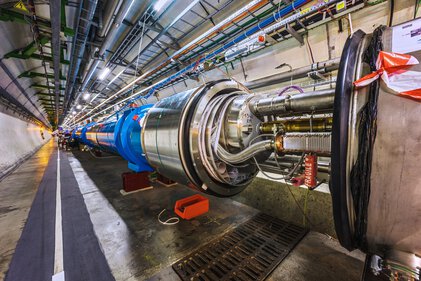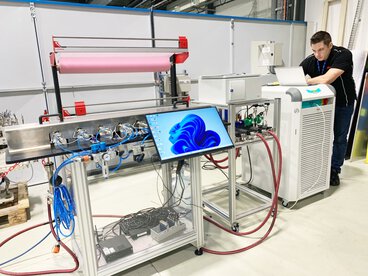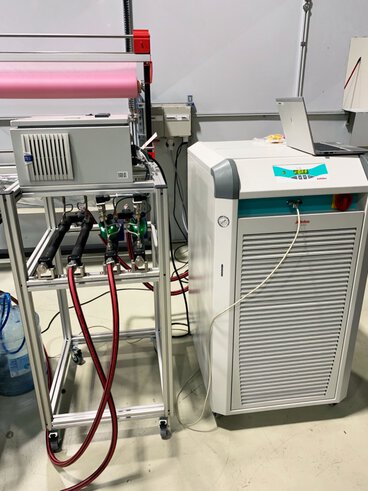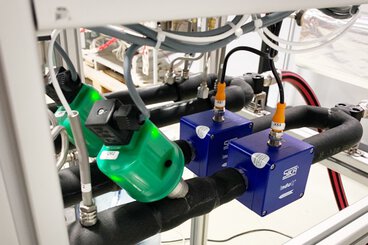The Importance of Temperature Control in Collimator Testing at CERN
07/18/2023
An extensive renovation program is currently underway on the Large Hadron Collider at CERN. One central component of this project is the development of new collimators, highly sensitive components that are responsible for capturing particles that deviate from the beam. To ensure the optimal performance and reliability of these collimators, precise temperature control during testing is required. For this, CERN uses a specially modified FL4006 recirculating cooler from JULABO.

The role of a particle accelerator and its collimators
To better understand the importance of temperature control in collimator testing, it is important to understand the basic operating principle of a particle accelerator and the critical role of the collimators in it. Accelerators are used to accelerate subatomic particles to high speeds and cause them to collide. These collisions allow scientists to explore the fundamental forces and building blocks of nature, gain new insights into the universe, and expand our fundamental knowledge of the world around us. The particles are guided and focused in the accelerator by a magnetic field and form a circulating beam in the accelerator ring.
The Large Hadron Collider (LHC) is the largest and most powerful particle accelerator in the world. With a circumference of 27 km, its ring lies underground in the area of the border between France and Switzerland. The LHC is operated by CERN, the European Organization for Nuclear Research and at the same time the world's largest particle physics laboratory.
Collimators act as important safety measures to capture particles that deviate from the intended beam path. This is because deviating particles pose risks to both accelerator components and personnel. The collimators absorb these misdirected particles, protecting the rest of the system. Therefore, comprehensive testing is essential to ensure the efficiency and reliability of the collimators.
Temperature control during collimator testing
Currently, the Large Hadron Collider and its collimators are undergoing a major overhaul to bring it up to date and expand its capabilities for future experimentation and discovery. The collimators are rigorously tested to ensure accurate results and reliable performance. An important part of these tests is temperature control: through precise temperature control and temperature profiles, researchers can assess the collimators' response to thermal variations and measure thermal conductivity. This enables a comprehensive review of the collimators' ability to handle temperature changes and effectively conduct heat to ensure their reliability and efficiency in capturing particles that deviate from the beam.
JULABO's tailor-made solution for temperature control
For the collimator tests, CERN opted for JULABO temperature control technology. As a leading supplier of precise temperature control solutions, we – with our Business Unit Solutions – have modified a recirculating cooler FL 4006 in this specific case to ensure optimum performance for collimator testing: equipped with electrical heating, this temperature control unit has two flowmeters and control valves as well as four temperature sensors and pressure sensors each. Seamlessly integrated into the test setup and controlled by CERN's overarching system (PLC), this JULABO solution ensures careful monitoring and control of the temperature profiles in the collimator test process.



